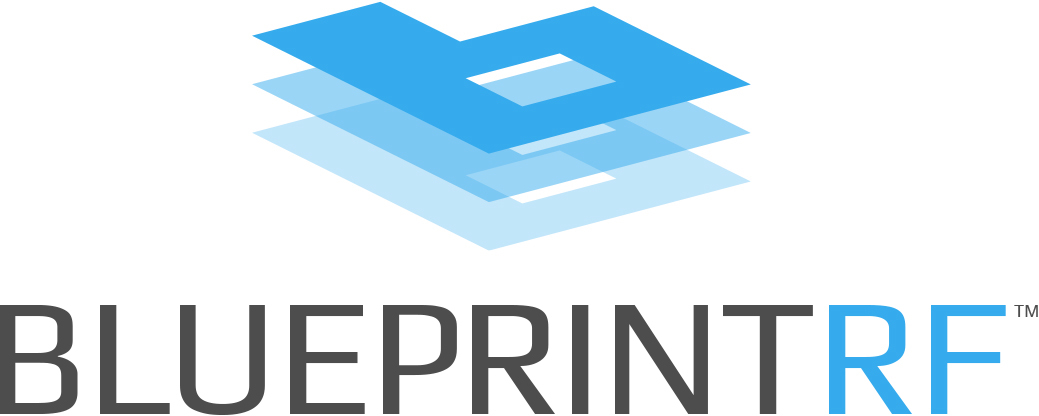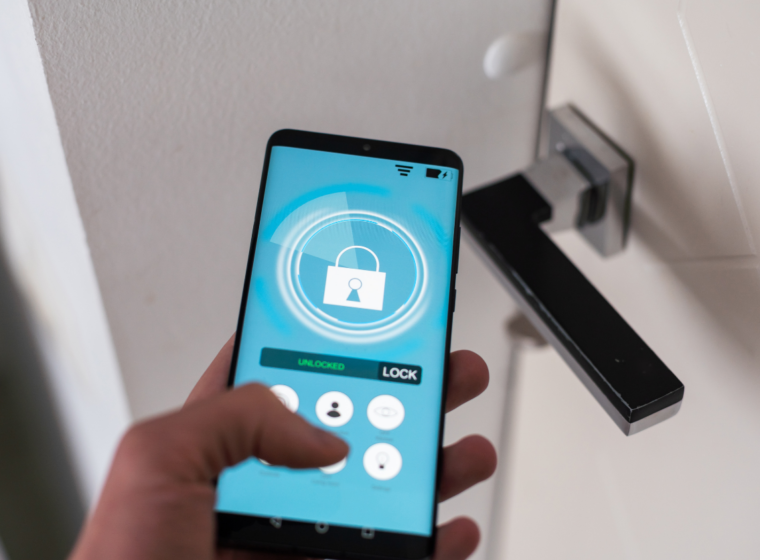Millennial travel has rapidly evolved in recent years, with this generation seeking unique and authentic experiences that differ from the traditional tourism industry. There are several compelling trends that are a driving force behind millennial travel, prompting hospitality providers to rethink how they approach and accommodate this massive demographic.
Especially notable compared to older generations, 72 percent of millennials prioritize spending money on experiences over material possessions, according to a study by the Harris Group. In turn, millennials in the U.S. travel 35 days per year on average, compared to 26 days for Generation X and 27 days for Baby Boomers, Expedia found.
In short, millennials travel more than any other generation. They make up the biggest demographic in the U.S. tourism industry. This is a call to action for hoteliers and hospitality leadership teams to understand the trends and nuances of millennial travelers in order to attract this valuable demographic.

Millennial Travel Statistics Shaping Today’s Trends
Millennials make up a diverse age group of people born between 1981 to 1996. They are the predominant demographic of today’s workforce, innovative thinkers, and family starters.
There are several compelling statistics that help explain the travel trends of millennials.
• Millennials are 62% more likely to extend a typical business trip into a leisurely vacation, catapulting the trend in bleisure travel (Expedia)
• 77% of travelers aged between 18-29 (including both young Millennials and Gen Z travelers) say that sustainability impacts their travel decisions. (Travel Agent Central)
• Compared to older generations, millennial travelers are more apt to embrace loyalty programs. (Expedia)
• 44% of millennials take vacations with their kids and 58% of millennial travelers have children under the age of 18 in the household (Resonance)
• 83% of travelers ages 18 to 34 use their smartphones to research hotels and 67% use them to book reservations. (Millennial Media)
Millennials are a driving force in the travel industry, with their unique preferences and habits shaping the way hotels and hospitality businesses cater to guests. Based on these statistics, among others, there are a few overarching trends that hospitality providers need to stay aware of.
1. Consistent Reachability
Millennial travelers expect seamless communication with hotels and hospitality businesses, making consistent reachability a crucial factor in attracting this demographic. To fulfill the demands of millennial travelers, hoteliers must utilize a range of communication platforms including social media, email, live chat services, and beyond.
Multi-channel Communication Platforms
To ensure effective communication with millennial travelers, hotels should establish a presence on multiple channels, like Facebook Messenger, WhatsApp Business API, Instagram Direct Messages (DMs), and Twitter DMs. This allows guests to choose their preferred method of contact while still ensuring that they receive prompt responses from the hotel staff.
Mobile-Friendly Websites & Apps
As millennials are known for their reliance on smartphones for almost everything – including travel planning – it’s important to have mobile-friendly websites or even dedicated apps where guests can easily access information about your property and make reservations seamlessly.
A study by Google and PhocusWright suggests that 48% of US smartphone users feel comfortable researching, booking, and planning their entire trip using only their mobile devices.
Responsive Customer Support Services
- Email: Ensure that all emails sent by potential customers are responded to promptly (within 24 hours).
- Social Media: Monitor social media accounts regularly for customer inquiries and respond as quickly as possible. This can help build trust and credibility with millennial travelers.
- Live Chat: Implement a live chat feature on your website to provide real-time assistance to guests who need immediate support or have questions about their booking.
Incorporating these strategies will not only improve the overall guest experience but also demonstrate that your hotel is committed to meeting the communication needs of millennial travelers, ultimately making it more appealing to this target audience.
2. Positive, Informative Online Reviews
Millennials rely heavily on online reviews when making decisions about their travel accommodations. In fact, TripAdvisor reports that 81% of travelers find it important to read reviews before booking a hotel. This highlights the significance of maintaining a strong online presence and ensuring your guests have positive experiences at your establishment.
Encourage Guests to Leave Reviews
To capitalize on this trend, hotels should actively encourage guests to leave honest feedback on popular review platforms like TripAdvisor, Booking.com, and Google My Business. You can do this by sending follow-up emails after their stay or offering incentives for sharing their experience.
Responding to Negative Feedback Constructively
Negative reviews are inevitable; however, how you handle them can make all the difference in attracting millennial travelers. Always respond professionally and constructively to negative feedback – addressing any issues raised and outlining steps taken towards improvement will show potential customers that you genuinely care about guest satisfaction.
Highlighting Positive Testimonials Across Channels
In addition to managing your reputation on review platforms, consider showcasing positive testimonials across other marketing channels such as social media pages or even directly on your website’s homepage – giving millennials further confidence in choosing your establishment over competitors.
Demonstrating Transparency Through User-Generated Content (UGC)
- Showcase UGC: Sharing user-generated content from satisfied guests is an excellent way of demonstrating transparency while also promoting brand authenticity among millennial travelers. Encourage guests to share their experiences on social media using a branded hashtag and repost the best content on your own channels.
- Host Contests: Another way to engage millennials with UGC is by hosting contests that encourage them to submit photos, videos, or stories from their stay at your hotel. This not only increases engagement but also helps you collect valuable testimonials for future marketing efforts.
Incorporating these strategies into your online reputation management will help ensure millennial travelers view your establishment as trustworthy and reliable – increasing the likelihood of securing bookings from this influential demographic.
3. Access to Digital Payments
Millennials’ affinity for convenience and tech literacy has made digital payments a critical factor in their travel choices. As a hotelier, it is essential to adapt your payment systems to cater to this preference, ensuring a seamless experience for your millennial guests.
Diverse Payment Options
Providing various digital payment options such as mobile wallets, contactless cards, and peer-to-peer payment apps can significantly improve the experience for millennial guests. By offering these alternatives alongside traditional credit card processing systems, you demonstrate that your establishment understands and values the preferences of millennial customers.
Streamlined Booking Process
A user-friendly booking process is crucial in attracting millennial travelers who expect efficiency at every step of their journey. Integrating digital payments into your online reservation system allows for quicker transactions while reducing friction during check-in and check-out procedures.
For example, incorporating platforms like Stripe, which specializes in online payments for businesses, or using popular OTAs like Booking.com, will help streamline this process further.
Contactless Check-In & Check-Out
In addition to diverse payment options, contactless check-in and check-out processes have gained popularity among millennials due to the ongoing pandemic. Hotels can implement technology solutions that enable guests to use their phones or smart devices for seamless self-check-ins without needing physical interaction with hotel staff.

4. Overall Brand Authenticity
Millennials tend to prioritize authenticity when selecting brands, and this is no different for their travel choices. A hotel’s brand identity plays a significant role in attracting millennial travelers, who often seek unique experiences that reflect local culture and community values.
A Focus on Local Culture
Millennials are more likely than older generations to prioritize immersive cultural experiences during their travels. Hotels can appeal to this preference by incorporating elements of local art, cuisine, and history into their branding and offerings. This connection between guests and the destination can be generated through an immersive experience, featuring elements of local culture.
Sustainable Practices
The Nielsen Green Generation Study found that 72% of millennials are willing to pay extra for products or services from companies committed to positive social and environmental impact. By adopting sustainable practices such as eco-friendly amenities, waste reduction initiatives, or partnerships with local conservation organizations, hotels can demonstrate their commitment to making a difference while appealing to environmentally-conscious millennial travelers.
Genuine Social Media Presence
Millennials value brands that engage with them on social media. Respond to comments, questions, or concerns promptly and genuinely. This shows your hotel’s commitment to providing excellent customer service while also fostering a sense of community among your online audience.
Parallel with supporting UGC above, encourage guests (especially millennials) to share photos or stories about their stay using your hotel’s branded hashtag on social media platforms like Instagram or Facebook. Showcasing real experiences from guests can help build trust and credibility with potential millennial travelers.
5. Promoting Deals via Loyalty Programs
Millennial travelers are known for their love of deals and loyalty programs, which can greatly influence their decision-making process when choosing a hotel or hospitality provider. According to Phocuswright research, millennials are more likely than older generations to participate in travel rewards programs, with 71% being members of at least one program.
Leveraging Loyalty Programs for Millennial Travelers
To effectively target millennial travelers, hotels should create or enhance their existing loyalty programs by incorporating the following elements:
- Personalization: Offer personalized rewards based on individual preferences and past stays. This will make your guests feel valued and encourage them to return.
- Tiered System: Implement a tiered system that allows guests to unlock new benefits as they accumulate points or stay nights. This creates a sense of achievement and encourages repeat business.
- Digital Integration: Ensure your loyalty program is seamlessly integrated into your website, mobile app, and social media channels so that it’s easy for millennials to access information about their membership status and redeem rewards.
- Gamification: Incorporate gamification elements such as badges, leaderboards, or challenges within the loyalty program to keep users engaged while encouraging friendly competition among members.
Promoting Exclusive Deals through Digital Channels
In addition to optimizing your loyalty program offerings for millennial travelers’ preferences, it’s essential to also promote these exclusive deals through digital channels where this demographic is most active. Consider the following tactics:
- Email Marketing: Send targeted email campaigns to your loyalty program members, highlighting special offers and personalized recommendations based on their preferences.
- Social Media Advertising: Utilize social media platforms like Facebook, Instagram, and Twitter to promote exclusive deals for loyalty program members or encourage new sign-ups with limited-time offers.
- Influencer Partnerships: Collaborate with travel influencers who have a strong millennial following to showcase the benefits of your loyalty program through sponsored content or giveaways.
By focusing on promoting deals via tailored loyalty programs and leveraging digital channels for outreach, hotels can effectively capture the attention of millennial travelers and build lasting relationships that drive repeat business.
6. Accessible, Omnipresent Technology
Millennials, raised in an age of pervasive tech, anticipate the same level of ease and access when they journey. As such, they expect the same level of technological convenience and accessibility when they travel. Hotels and hospitality businesses must adapt to these expectations by offering cutting-edge technologies that enhance the guest experience.
High-Speed WiFi Connectivity
The most basic requirement for millennial travelers is access to high-speed WiFi connectivity. This allows them to stay connected with friends and family, work remotely if needed, stream entertainment content, or research local attractions during their stay. Ensuring your hotel provides reliable and fast internet connection throughout all areas of your property will greatly appeal to this tech-savvy demographic.
In-Room Entertainment Options
In addition to WiFi connectivity, millennials also value a wide range of in-room entertainment options that cater to their diverse interests. Consider integrating smart TVs into guest rooms which allow guests to connect their own devices to streaming services like Netflix or Hulu, as well as providing access through popular apps such as YouTube or Spotify directly on the TV screen.
Mobile App Integration & Keyless Entry
- Mobile App Integration: Many hotels are now adopting mobile app integration allowing guests not only to book rooms but also to make the check-in/check-out process easier using smartphones without having any physical interaction with front desk staff, thus reducing waiting time significantly, especially during peak hours period
- Keyless Entry: Another popular trend among millennial travelers is the preferred use of keyless entry systems, which allow guests to unlock their hotel room doors using a mobile app or digital key. By eliminating the need for physical keys, keyless entry systems offer an additional layer of convenience and improved security.
Charging Stations & Smart Room Controls
Millennials often travel with multiple electronic devices, so providing ample charging stations and outlets in guest rooms is essential. Additionally, incorporating smart room controls for lighting, temperature, and even window shades will give your millennial guests more control over their environment while staying at your property.
Omnipresent tech has drastically changed the way we venture, giving us more chances to uncover and savor life’s wonders. With Blueprint RF’s hospitality network solutions, travelers can now stay connected no matter where their journeys take them.
How Blueprint RF Can Help
To capitalize on the growing millennial market share, hotels and hospitality businesses must invest in the right set of technology solutions – a task made easier with Blueprint RF’s managed network services. Blueprint RF offers a range of managed network services that can help your business stay ahead of the curve and meet the expectations of this tech-savvy generation. To learn more, contact Blueprint RF today.











